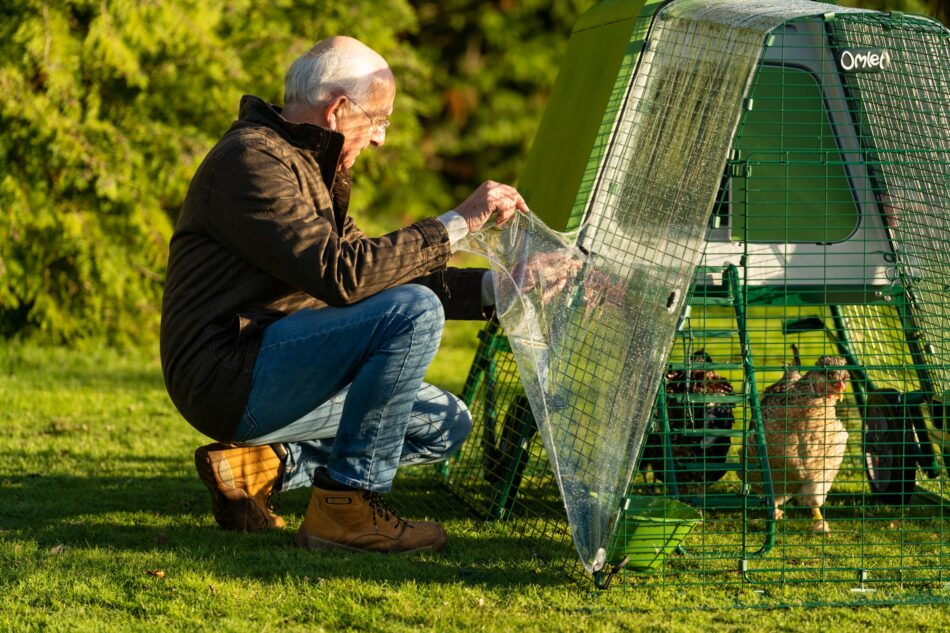The best pets for older people
Pet ownership isn’t just for the young. In fact, people from all walks of life can enjoy the companionship and love that animals have to offer. There are a few extra considerations to weigh when choosing the best pets for older people – but with some planning and preparation, pets can help older owners feel young at heart.
Why pets are good for seniors
It’s a well-studied and widely-known fact that pets can be therapeutic. Many long-term healthcare facilities employ the use of dogs, cats, and other tame animals in programs that inspire, uplift, and encourage their occupants. Pets offer love and affection with no strings attached, and no questions asked – giving many people a boost in mental health, an air of peace, and a feeling of importance.
For seniors, pets can bring companionship, a sense of purpose, and even improve health conditions or concerns. But great thought should be put into selecting the right pet, planning for their future, and knowing when and from whom to solicit help in caring for them when the time comes.
The best pets for older people
Whether you’re looking for a pet to enjoy during retirement, or thinking about gifting a loved one with an animal companion, it’s important to keep in mind:
- The physical ability of the owner
- Time and space requirements of the pet
- Average lifespan of the pet
Pet care shouldn’t burden the owner, nor should it be compromised when owners are no longer able to perform the tasks necessary for their health and wellbeing. It’s a good idea to have friends, family members, or other resources in place if an elderly owner should need assistance with their pet. Additionally, pets that might be perfect for elderly individuals can come with a few caveats to consider.
Cats
Arguably one of the easiest companions, cats are at the top of the list when deciding on a pet for older people. Some breeds of cats are more easygoing than others, but in general, most adult cats make excellent companions for those getting on in years.
Cats don’t require much space – they’re happy to share a home with their owners. Having a natural desire to bury their eliminations, litter box training is quick and easy, and the vast majority of indoor cats have mastered this skill by the time they’re a few months old.
Felines are also known for being very self-sufficient. They can be free-fed, meaning their food can be left out and refilled as needed. The majority of a cat’s day is spent sleeping, with the average cat snoozing up to 18 hours or more each day. Older cats can be readily found at shelters, rescue organizations, or adoption events – most of which will already be spayed or neutered and vaccinated.
Feline factors:
- Kittens have lots of energy, and can easily (though usually, accidentally) break the skin of older people with their teeth and claws
- Cats have long lifespans, averaging 12-18 years – though some can live up to 20 years and beyond
- Litter boxes will need to be cleaned regularly
- Vaccines are necessary for cats, so vet visits will be inevitable
Dogs
Dogs are a close second behind cats when considering ease of care and companionship. Their loyalty and devotion is hard to match, and their care is easy and straightforward. Dog breeds are diverse and numerous, giving dog owners many choices when selecting their companion.
Older dogs are typically “set in their ways”, and are usually housebroken, spayed or neutered, and fully vaccinated. Younger dogs can be a good choice for older people, so long as they have learned the basics of housetraining and obedience, and have finished teething – usually by 8 months of age.
For owners with specific health concerns, service dogs might not only be wonderful companions, but life-saving. Many dogs can be trained to alert owners to events like high blood pressure episodes, impending seizures or fainting spells, or low blood sugar levels. So, if you’re looking for a pet to accompany an aging loved one, a dog trained to alert them to medical events can be an excellent option.
Canine considerations:
- Puppies require a lot of work to housetrain, and will be busy teething on furniture, shoes, human hands and feet, and anything else they can get their mouth around
- Exuberant breeds, young or untrained dogs may jump up and knock older people off balance
- Dogs will need to be let out in an enclosed yard or walked on a leash multiple times per day to relieve themselves and exercise
- Small dog breeds can live 15-18 years on average
- Certain breeds have coats that may require regular grooming
- Vaccines are required for dogs, so vet visits are a necessity
Chickens
They may not be a conventional pet, but chickens are great for people who love to spend time outdoors. Starting a flock during retirement is an excellent way to enjoy fresh air and keep your mind and body active. And, thanks to recent recognition, hens are now allowed in many urban areas.
Chickens do require their own companions, so you’ll need to keep at least 2-3 hens at a time. Surprisingly, chickens don’t require an excessive amount of space, with most urban backyards having plenty of room. And, hens are very self-sufficient, able to free feed and forage for their meals.
Flock factors:
- Chicken-keeping can be physically demanding
- Hens are limited to the outdoors
- These birds of a feather must flock together in a group of at least 2-3 hens
- Chickens have a relatively short lifespan, averaging 4-6 years
- Eggs will need to be collected regularly
Small birds
Small birds can be appealing companions for senior owners. Their lifespans aren’t as long as parrots and other larger birds, and their care is more simple. Choices like parakeets, canaries, and finches are good options for older adults.
These birds are easy to care for, beautiful to look at, and provide songs (and potentially even words in the case of parakeets) as feedback to their caretakers. Elevated bird cages make it easy to view the inhabitants, and are easy to clean.
Parakeet parameters:
- Small birds may be more difficult to hand-tame, and may fly off on a house-wide excursion
- Parakeets may learn to mimic sounds they commonly hear, such as appliance beeps, doorbells, etc.
Rabbits and guinea pigs
Small animals like rabbits and guinea pigs are other pets for older people. They’re fairly self-sufficient, thriving on a free-fed diet of pellets and hay, and are entertaining to watch. Easy-to-clean outdoor rabbit and guinea pig hutches help reduce indoor odors and give an opportunity for their owners to spend more time outside. Rabbit and guinea pig life spans are similar, with 8 years and 6-7 years being their averages respectively.
Rabbits and guinea pigs are soft, full of character, and are very animated animals. They’re a joy to watch, and can interact with their owners much like a dog or a cat would. Rabbits can be kept individually so long as they have plenty of interaction with their owners, but guinea pigs are highly social and always do better in bonded pairs.
Small pet special considerations:
- Rabbits and guinea pigs may be difficult for older people to pick up and handle
- Rabbits in particular have sharp nails and powerful legs, which may accidentally injure those with thin skin or who bruise easily
- Guinea pigs must be kept in pairs, and can be very vocal
Pets that aren’t perfect for older people
For many aging people, having pets is about companionship. A bond between a human and animal is a powerful thing, but like all relationships, sometimes there are not-so-great matches made. For example, an older person who has limited mobility or flexibility should probably not embark on a potty-training journey with a rambunctious puppy. Or, an elderly person seeking a warm lap-napper would benefit more from an older, calm cat than an active kitten.
Other pets that aren’t the most companionable for older people include:
- Reptiles
- Insects
- Fish
- Rodents
- Large birds like parrots
- Exotic pets like hedgehogs, sugar gliders, and ferrets
While each pet has something unique to offer to their owners, these animals require specific care and attention that is probably not suitable for someone seeking companionship over novelty.
Enjoying pets with Omlet
No matter what phase of life you’re in, our pet products bring joy into the lives of pets and their people. From luxury dog beds that add character to your home, to litter box furniture that is both discrete and functional, your pets can bring both companionship and charm to your home. Our designs deepen the bond between animals and humans, making their connection lasting and wondrous.
This entry was posted in Pets


One reply on “The best pets for older people”
I’m surprised and disappointed by the suggestion of letting kitty run outdoors to reduce need for cleaning litter tray. It increases the chance of injury or death by cars or predators, risk of being trapped by frustrated neighbors, eating rat poison, killing birds… All these risks outweigh the inconvenience of scooping poop. How about getting a litter robot instead? My friends love it!